Soap Operas and Socialism: Dissecting Kim Jong-un’s Evolving Policy Priorities through TV Dramas in North Korea
Photo credit: Jean H. Lee. All Rights Reserved.
Abstract:
Romance, humor, tension — everyone loves a good sitcom, even North Koreans. But in North Korea, TV dramas are more than mere entertainment. They play a crucial political role by serving as a key messenger of party and government policy. They aim to shape social and cultural mores in North Korean society. And in the Kim Jong-un era, they act as an advertisement for the “good life” promised to the political elite. Through TV dramas, the North Korean people learn what the regime says constitutes being a good citizen in Kim Jong-un’s North Korea today: showing loyalty to the party, using science and technology to advance national interests, thinking creatively in problem-solving, and facing the nation’s continued economic hardships with a positive attitude. The soaps and sitcoms reveal a shift in social priorities: Viewers are encouraged to put their families first, to nurture and elevate the next generation, and to be bold in thinking outside the box rather than settling for the status quo. These contrast with themes popular in films made during the Kim Jong-il era, which emphasized putting the state before family, the military above the party, and conformism over originality. The props in today’s dramas, including laptops, drones, fashionable clothes, and gold wristwatches, are prominently positioned in such settings as elevators, computer labs, and newly built high-rise apartment buildings. These consumer products are the arsenal of the new generation of Kim Jong-un elites — not the tanks and rifles of his father’s era of filmmaking.
Click here for the full academic paper for the Korea Economic Institute of America.



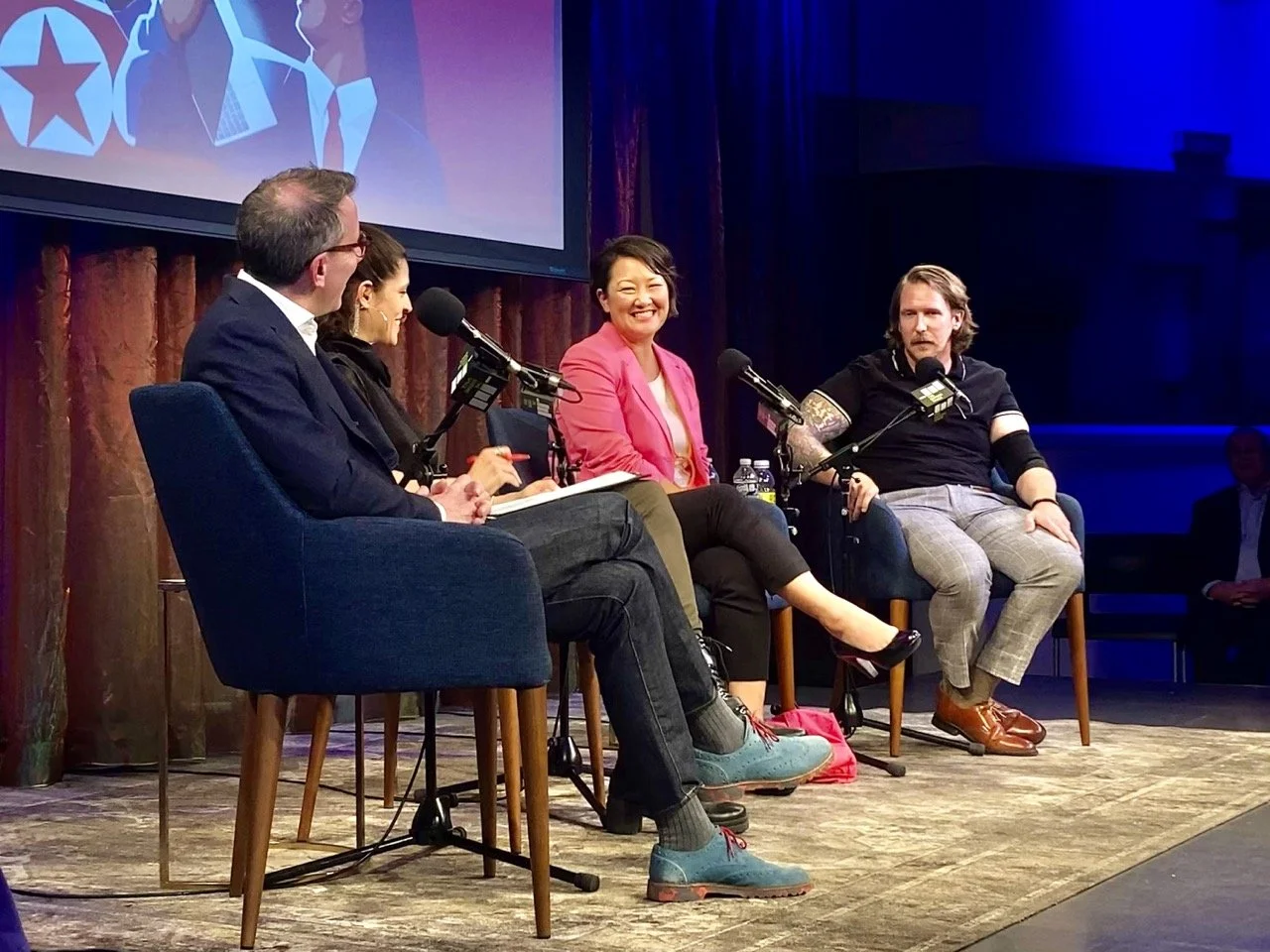
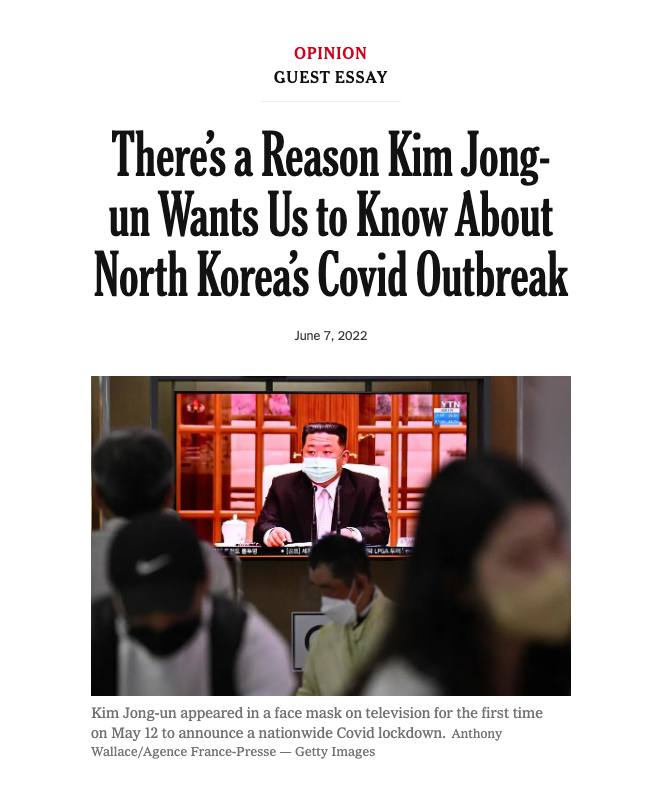

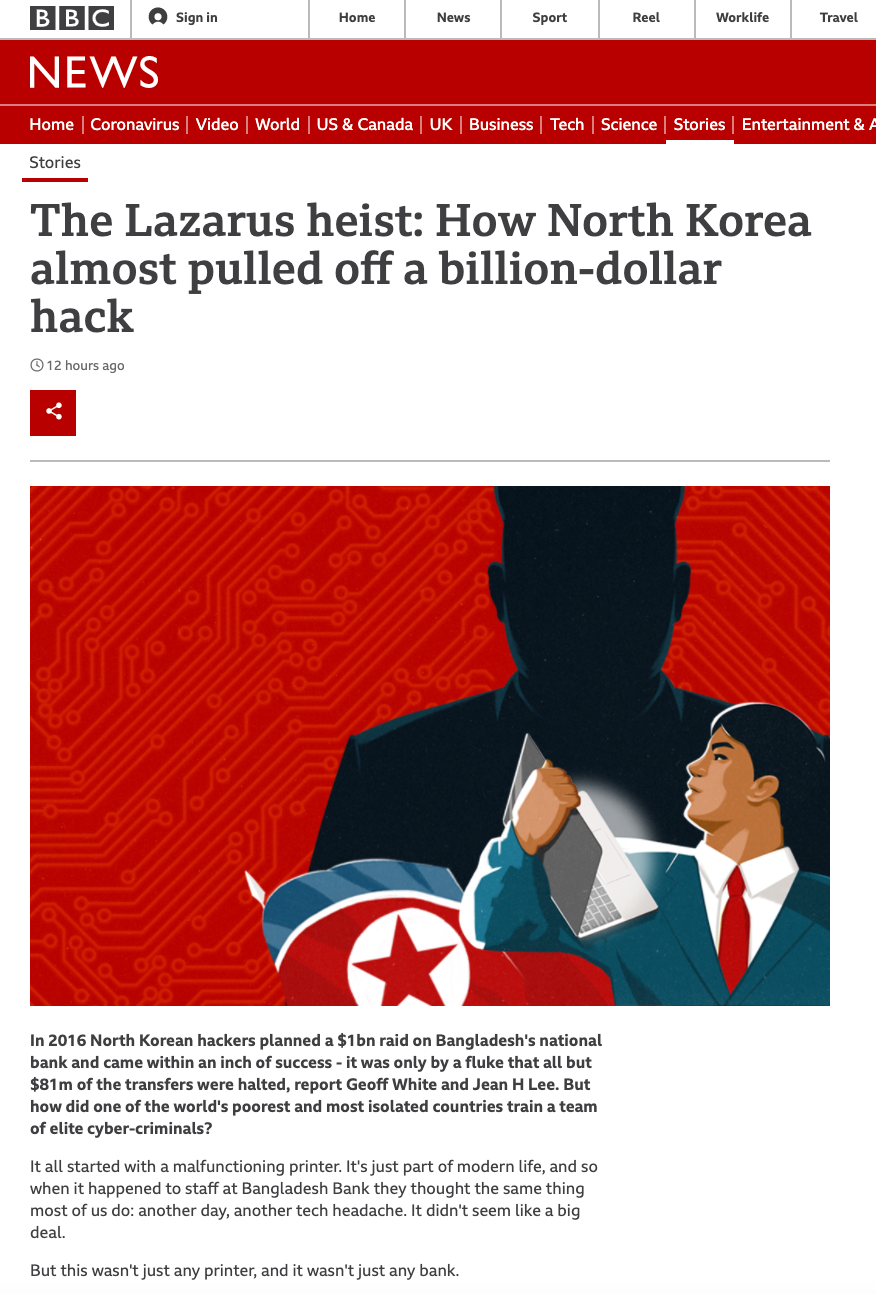
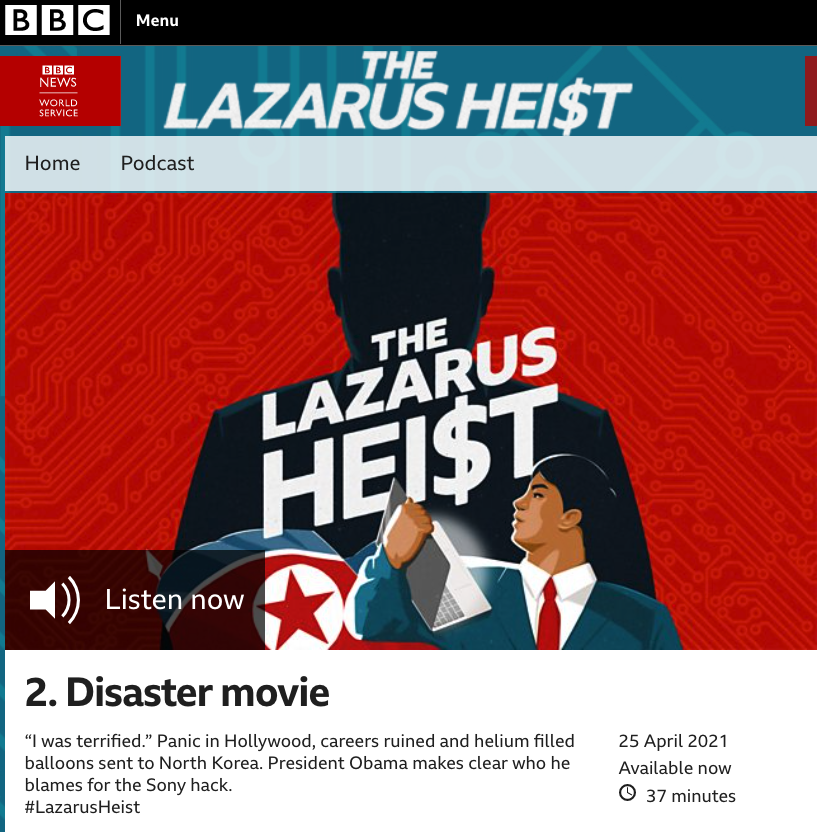












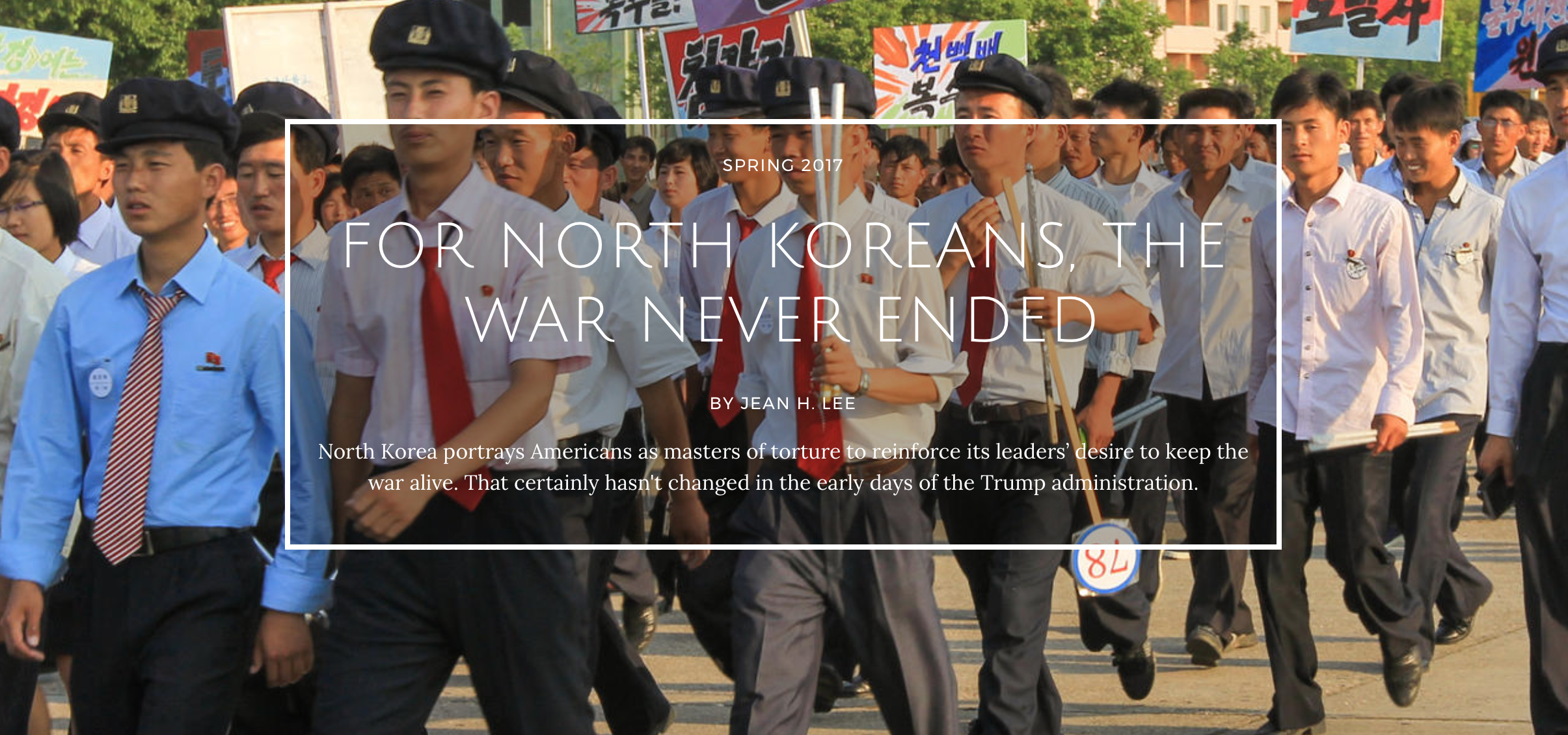



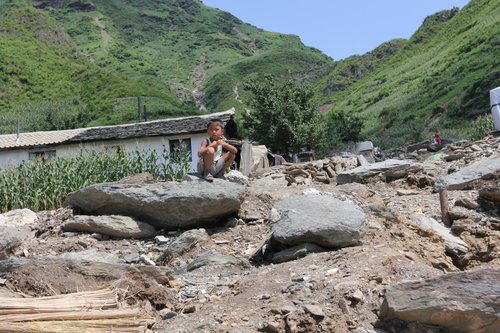






Download all episodes of The Lazarus Heist, watch Lazarus Heist animations, read our feature story about the hackers and view visualizations of the podcast episodes on Lazarus Heist homepage on the BBC World Service website!